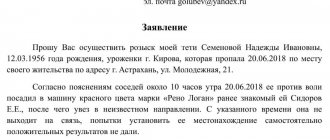The consumption of alcoholic beverages by citizens is not something out of the ordinary at the moment. But it is worth understanding that a state of altered consciousness can lead to unpredictable consequences, which in the future can change your whole life.
Alcohol affects different people differently, some become liberated, others forget, others become aggressive and unpredictable. But one way or another, when committing a criminal act, liability cannot be avoided by the law in relation to third parties, and alcohol intoxication will be considered an aggravating circumstance.
Legislative regulation
Article 23 of the Criminal Code of the Russian Federation states that a person who is under the influence of alcohol, drugs or toxic substances at the time of committing a criminal act must certainly be punished.
Thus, when committing illegal actions due to intoxication, it will not be possible to avoid punishment. Responsibility for the murder itself is assigned based on Article 105 of the Criminal Code of the Russian Federation. We will talk about responsibility in one of the following paragraphs.
More information about the penalties for killing a person can be found here.
Pathological intoxication
It is fundamentally different from simple alcohol intoxication.
Does not apply to alcoholic psychosis. The manifestations of this condition do not depend on the amount of alcohol consumed, but are the body’s reaction to the incoming alcohol.
It may go unnoticed by others or occur with such personality changes that may pose a threat to the patient himself and to those around him. It has a sudden beginning and more often the same ending.
Find the answer
Are you having any problem? Enter “Symptom” or “Name of the disease” into the form, press Enter and you will find out all the treatment for this problem or disease.
Possible development after ordinary alcohol intoxication. This phenomenon sometimes occurs in people who are considered generally healthy and do not have an addiction to alcohol.
Is it an aggravating or mitigating factor?
Based on Article 63 of the Criminal Code of the Russian Federation, clause 1.1. – The judge (court) who imposes the punishment, depending on the nature and degree of social danger of the crime, the circumstances of its commission and the identity of the perpetrator, may recognize as an aggravating circumstance the commission of a crime while intoxicated due to the use of alcohol... this means that if an attacker commits a socially dangerous crime, the nature and degree of which is quite severe, then intoxication will be considered an aggravating factor. Murder is a socially dangerous act, the nature and degree of which is serious. Therefore, intoxication will be considered an aggravating factor for murder.
Does drunkenness aggravate or mitigate guilt?
The state of alcohol intoxication when committing a crime is assessed in two ways. On the one hand, drunkenness causes an abnormality in mental health, which determines the direction of behavior and which a person cannot cope with. In this case, in accordance with Article 6 of the Criminal Code of the Russian Federation, the state of intoxication is considered not as an aggravating, but as a mitigating circumstance. When considering the issue from the other side, one cannot ignore the fact that a person makes a decision on his own, and this disavows a mitigating circumstance, transferring it to the rank of an aggravating one.
Corpus delicti
A person who commits murder while intoxicated will be punished on a general basis, since the legislation does not clearly define the change in the level of responsibility of such persons. This act will be qualified under Article 105 of the Criminal Code of the Russian Federation.
Homicide is the intentional act of the accused that results in the death of the victim. Murder can be simple, with aggravating or mitigating circumstances (more information about murder under aggravating circumstances can be found here, and more details about causing death under mitigating circumstances can be read in this material).
The object when considering the corpus delicti is human life itself, as a biological process, as well as social relations that are necessary to achieve the safety of the population. At the same time, it is important to understand and know the moment at which a person’s biological death occurred.
The objective side is a list of the main points that characterize the criminal act of the accused. In this case, both action and inaction can be taken as illegal actions that resulted in the death of the victim. The consequence of a crime is death; a cause-and-effect relationship must be considered, that is, the logical chain of the event that occurred. The type of crime is material.
The subject of the crime is the accused, who must be sane and over 14 years old.
The subjective side is the motives and goals of the crime committed, as well as the fact of intentional harm to a person, while the intent can be both direct and indirect.
Statistics of crimes committed under the influence of intoxicants and alcohol
The statistics are very depressing. Under the influence of alcohol the following are committed:
- 3 rapes out of 4;
- 4 premeditated murders with serious beatings incompatible with life, out of 5;
- 7 acts that fall under the definition of “hooliganism” out of 10.
According to research results, it has been found that an increase in crime is always provoked by an increase in the consumption of alcoholic beverages. The most common acts that are committed in an inadequate state are robbery, murder, rape, beatings (often extremely severe), street and house thefts, acts of vandalism and property damage.
Domestic crimes due to alcohol consumption
Up to 80% are committed by people while drunk. It is worth noting the fact that most of them are striking in their absurdity, meaninglessness and indescribable cruelty. Most often, a criminal who has committed an unlawful act cannot explain the reason for his behavior either to the police or the court, or even to himself. The motive for the crime often remains unclear. This circumstance is always taken into account by the court.
Responsibility under Art. 105 of the Criminal Code of the Russian Federation
Punishment is imposed on the basis of Article 105 of the Criminal Code of the Russian Federation, subject to the presence or absence of qualifying signs of the act (signs that will make the punishment more severe).
Ordinary murder, without qualifying characteristics, is punishable by imprisonment for a term of six to fifteen years, with or without restriction of freedom for a term of up to two years.
Taking into account the fact that intoxication is an aggravating factor, based on judicial practice, we can conclude that the punishment will be more severe. It’s difficult to say exactly how much, but most often intoxication adds a couple of years.
Murder that has qualifying characteristics (see Article 105 of the Criminal Code of the Russian Federation Part 2) is punishable by imprisonment for a term of eight to twenty years with restriction of freedom for a term of one to two years, or life imprisonment, or the death penalty. If the punishment is not lifelong (the death penalty has now been abolished), then if you become intoxicated, you will also be sentenced to a couple of years.
Causes
Most scientists believe that the main causes of this form of psychosis are:
- Diseases of the nervous system;
- Traumatic brain injuries;
- Mental pathologies;
- Epilepsy;
- Personality disorders (psychopathy).
Provoking factors for the occurrence of this condition are:
- Chronic fatigue of the body;
- Mental and physical exhaustion of the body;
- A state of prolonged stress;
- Increased sensitivity of the nervous system;
- Profound sleep disturbances;
- Affective (emotional) disorders.
The influence of concomitant or exogenous factors is recognized. Some doctors take into account the alcoholic origin of such intoxication, that is, the connection with alcoholism.
Forms and manifestations
There are main forms of this psychotic state:
- Epileptoid – excitable, accompanied by significant motor activity:
- The patient has a disorder of consciousness;
- He does not perceive reality;
- Embittered;
- Angry;
- Can be cruel and sees everyone as an enemy;
- Accompanied by complete disorientation in the environment;
- Automaticity and randomness of actions are noticeable;
- The patient is silent or mutters incoherently;
- Rarely accompanies his actions with a cry.
- Hallucinatory-paranoid (paranoid) differs:
- Loss of connection with reality;
- Motor excitement;
- Automatic actions;
- Delusional experiences with signs of hallucinations, suspicion, and aggression appear;
- Actions may contain elements of reality;
- Speech is abrupt, often with threats.
- Alcoholic catatonia, characterized by being stuck on one negative experience. The patient performs the same action, repeats the same words, not paying attention to those around him, and resists.
Possibility of full recovery
Such patients are treated in a hospital.
Antipsychotic drugs (neuroleptics) are used to relieve the main symptoms of psychosis. Most often it is Promazine or Chlorpromazine. They perform detoxification - cleanse the body, normalize the functioning of all organs and systems.
Vitamin medications are used. The course of treatment is long in a specialized department under the supervision of specialists.
In the future, psychotherapists are involved. Subject to complete abstinence from any type of alcohol and a healthy lifestyle, the prognosis for recovery is positive.
Forms or how it can occur
Pathological intoxication can occur in the following forms:
- Dysphoric twilight state. The patient shows aggression, embitterment, a desire to take revenge on someone, punish, and prove justice. Is in an excited state. It is difficult to keep him in place - he constantly wants to leave the room, run away somewhere, get involved in a fight. Often such intoxication ends in illegal actions.
- Depressed. The mood drops sharply, the patient cries, talks about his guilt in something. Sometimes suicidal ideas appear. The behavior is accompanied by unrelated screaming and rapid, meaningless movements. Possible self-harm.
- Amnestic. It manifests itself as a complete loss of memory during a psychotic disorder.
- A form of anesthesia. The patient quickly falls asleep, nervous activity is depressed, sensitivity is lost, and coma is possible.
- Delusional. It manifests itself in the emergence of false thoughts and ideas that determine consumer behavior. For example, in a state of delirium of persecution, a person may disassemble furniture, look for imaginary cameras or listening devices in the room, and throw out suspicious things.
Episodes of pathological alcohol intoxication always pose a potential threat to both the consumer and those around him. It is important not to leave a person in such a state alone, and try to organize observation. After an attack, you should seek advice from a psychiatrist.
When conducting diagnostics, it is important to subtly distinguish all manifestations of short-term psychotic disorder, to fully reconstruct the events and details of the patient’s behavior.
Main symptoms of psychosis
The main signs of the disease do not appear all at once.
Symptoms of pathological intoxication:
- Development of the condition from taking small doses of alcohol.
- A sudden onset with no obvious signs of simple alcohol intoxication; pallor and dilated pupils may appear.
- Deep disorder of consciousness, lack of connection with reality.
- Manifestation of delusional experiences with impaired perception of reality and the appearance of hallucinations.
- Increased motor activity, disorientation in space.
- Changed mood, signs of fear and anxiety, hostility. They can defend themselves or run away.
- Manifestations of aggression and cruelty towards imaginary enemies are possible.
Outwardly they look a little drunk, but it is difficult to negotiate with a person in such a state, although a conversation is possible. There is a real threat of committing severe violence against others.
Intoxication ends as suddenly as it began. The patient immediately falls into a deep sleep, reminiscent of a coma. After that he can't remember anything.
Sometimes he remembers individual fragments of events, more often in the paranoid form. With epileptoid intoxication, complete amnesia occurs.
State of intoxication, its criminal legal significance
11
PLAN:
I. INTRODUCTION: ……………………………………………………………………………….………….. 2
II. State of intoxication, its criminal legal significance………….……..… 4
- Drunk …………………………………………………………………………. 4
- On the influence of intoxication on guilt and responsibility…………….. 6
- Criminal liability of persons who committed a crime while intoxicated……………………………………………………………….…………… 8
III. CONCLUSION…………………………………………………….…….…………………… 16
TASK ……………………………………………………………………………….….….….…………. 18
REFERENCES…………………………………………………..…….…….…..….. 23
- INTRODUCTION
Having started working on this topic, I discovered a meager amount of literature covering the issue of the criminal legal significance of intoxication. This may indicate that either this topic is insignificant and not important for legal “minds”, or in the criminal legal aspect everything is so clear and understandable that no in-depth investigation on this issue is required.
In the Criminal Code of the Russian Federation the word “intoxication” appears only 2 times - in Art. 23 and 63. Here they are:
Article 23. Criminal liability of persons who commit a crime while intoxicated: “A person who commits a crime while intoxicated caused by the use of alcohol, drugs or other intoxicating substances is subject to criminal liability.”
Article 63. Circumstances aggravating punishment: 1. Aggravating circumstances are recognized as:
e) involvement in the commission of a crime of persons who suffer from severe mental disorders or are in a state of intoxication, as well as persons who have not reached the age at which criminal liability begins.
And not a word more. But, nevertheless, the problem exists and the above articles of the Criminal Code of the Russian Federation do not completely resolve it. After all, the brevity of Art. 23 of the Criminal Code of the Russian Federation does not cover many aspects of the problem. For example, most often the issue of alcohol intoxication is especially acute when investigating crimes related to road accidents. And it is very difficult to prove innocence if the culprit of the accident was drunk. No causal connection will help (in practice it has been tested many times), even if the cause of the accident was a completely different circumstance.
So let's figure out what a state of intoxication is, and what criminal legal significance it has, and what the relevance of this issue is.
- STATE OF INTOXICATION, ITS CRIMINAL LEGAL SIGNIFICANCE
1. State of intoxication
It is not always the threat of an attack or the attack itself, as well as blackmail, that is carried out by a person without signs of alcohol or drug intoxication. Alcohol and drugs lead the psyche of the attacker or threat to a state of increased excitability and sharply reduce the level of self-control. That is why in extreme situations it is sometimes important to determine what and how much the attacker “took” and what can be expected from him.
The signs of alcohol intoxication are so well known in our society that there is no need to dwell on them in detail. In an extreme situation, it is rather important to determine the stage of intoxication and the nature of changes in a person’s behavior under the influence of alcohol.
The most dangerous are the mild and moderate stages of alcohol intoxication, which cause increased aggressiveness. Some people take alcohol “for courage,” thereby overcoming the feeling of fear, the signs of which you can nevertheless detect. During alcohol intoxication, the criticality of perception of what is happening decreases. Such a person has difficulty perceiving or does not perceive at all any kind of argumentation coming from another person. The movements become more active and can quickly become aggressive. As a rule, a physical attack is first preceded by verbal aggression, when the person threatening you begins to swear, he has a “glitter” in his eyes, sometimes bursts into causeless laughter, and in general his state is characterized by euphoria. In some people in this state, sensitivity to pain decreases, there is practically no awareness of responsibility for their actions, and there is no sense of empathy for others. In this case we are talking about mild narcotic intoxication, which has a stimulating effect.
In a chronic drug addict, you may notice traces of injections and characteristic bags under the eyes. By the way, it should be borne in mind that the effect of the drug can be quite short-lived, and the end of its action in an extreme environment for the drug addict can cause abstinence in him, the consequence of which will be a sharp deterioration in the condition of this person: he can become depressed, angry, even more excited and aggressive. He may have an irresistible desire to remove the obstacle to receiving the next dose of the drug as quickly as possible. For some drug addicts, this period of “activation” lasts a short time, after which a period of severe depression may begin, including epileptic seizures, when it becomes harmless and practically helpless. But before this state occurs, it is very, very dangerous.
2. On the influence of intoxication on guilt and responsibility
According to some scientists, “the scheme of psychological analysis of the influence of mental disorders on criminal liability within the framework of sanity is also suitable for assessing the significance of the state of intoxication at the time of an act prohibited by criminal law”0. However, thanks to Art. 23 of the Criminal Code of Russia, the influence of intoxication on the state of mental activity of a person committing a socially dangerous act is not subject to special study by law enforcement agencies.
Meanwhile, alcohol, drugs and similar intoxicating substances, along with other factors, are of fundamental and not the least importance in disrupting the balance of the forces of excitation and inhibition, which ultimately creates mental abnormalities. Experts note that a state of intoxication increases a person’s mental and motor activity and makes it difficult to concentrate; there is a reassessment of one’s capabilities, and self-criticism decreases. In a state of intoxication, instincts are disinhibited and hidden personality traits and experiences that are controlled in a sober state (jealousy, vanity, resentment, etc.)0 appear.
In the criminal legislation of some foreign countries, there is a slightly different approach to assessing the influence of the state of intoxication during the commission of a crime on the criminal liability of the subject. For example, German criminal law is based on the concept of so-called intentional intoxication: if the subject had to take into account the possibility of committing a crime while intoxicated, and, despite this, brought himself into such a state, then the possibility of mitigating the punishment does not apply to him . Otherwise, the norm regulating the grounds of diminished sanity may be applied to the offender.
Austrian criminal legislation also provides for a mitigation of punishment for a criminal who committed an act while intoxicated, depending on the possibility of his reproachful pre-criminal behavior. Yes, Art. 35 of the Austrian Criminal Code establishes that a criminal may have his sentence commuted if he was in a state of intoxication that does not preclude sanity, and if the reduction in the threshold of sanity caused by this state does not require a reproach regarding the use of intoxicants0.
Not only foreign, but also domestic pre-revolutionary criminologists proposed in some cases to consider the state of intoxication - depending on specific factors - as a mitigating circumstance. In particular, N.D. Sergievsky noted that the mental activity of a subject in a state of intoxication may resemble a picture associated with the influence of mental anomalies0.
N.S. Tagantsev made the following proposal: “In the interests of legal imputation, it is necessary to distinguish between two degrees of intoxication - complete and incomplete. Complete intoxication includes not only the onset of complete unconsciousness and sleep, but also the stage when an intoxicated person loses the ability to recognize the dependence and causal relationship of phenomena, when, under the influence of an abnormal state of the senses, the sphere of his ideas receives a subjective coloring and the mind loses the ability to control actions. Such a mental state undoubtedly eliminates sanity. Incomplete intoxication will embrace all the previous, primary stages; Moreover, sanity undoubtedly exists, and the excited state of the accused can only, depending on the circumstances, influence the choice of the measure of responsibility”0.
3. Criminal liability of persons who committed a crime while intoxicated
Article 23 of the Criminal Code of the Russian Federation states: “A person who commits a crime while intoxicated due to the use of alcohol, drugs or other intoxicating substances is subject to criminal liability.”
A special issue related to the determination of sanity is the assessment of the mental capabilities and abilities of a person to control his behavior in a state of severe alcohol or drug intoxication.
Often, people brought to criminal responsibility state: “I was very drunk, I don’t remember anything, I didn’t want to harm anyone.” This kind of defense is completely unacceptable.
Data from forensic psychiatry indicate that intoxicated people do not experience hallucinatory-delusional experiences or unmotivated psychomotor agitation.
With physiological intoxication, the functioning of inhibitory processes of nervous activity and self-control are weakened. However, a drunk person maintains contact with the environment, and his actions are motivated.
Normal physiological intoxication occurs gradually. The person is aware that alcohol stupefies him, disrupts his normal mental state, coordination of movements, speed of reaction, etc.
By continuing to drink alcohol, a person voluntarily brings himself into a state of severe intoxication, which, although it disrupts mental processes, is not a painful condition that occurs against the will of the person.
The exception is pathological intoxication, which occurs unexpectedly and even when drinking small doses of alcohol.
Pathological intoxication is a painful condition that refers to short-term mental disorders and is qualitatively different from the deep degree of ordinary household intoxication. In pathological intoxication, both of these criteria for insanity are present.
Pathological intoxication mainly manifests itself in two forms: epileptoid and paranoid.
In the epileptoid form, the person experiences a distorted perception of the environment, a twilight state of consciousness, and agitation, which leads to unlawful behavior.
In the paranoid form, hallucinations and delusional ideas occur. A person in a state of paranoid form of pathological intoxication outwardly acts expediently and purposefully. However, his consciousness is disturbed, the surrounding reality is perceived distorted, a feeling of fear and anxiety arises, which gives rise to the desire to escape, defend himself, and attack enemies who appear to him under the influence of delirium.
A characteristic sign of pathological intoxication in these cases is the absence of physical signs of intoxication. Thus, a person’s movements are precise, confident, his gait is firm, and his speech is clear.
The state of pathological intoxication is short-term in nature and ends, as a rule, in deep sleep with complete loss of memories of what happened (amnesia).
According to psychiatric science, pathological intoxication does not tend to recur and remains a single event in a person’s life.
Since drunkenness as a social phenomenon is condemned in any society, providing drunkards with benefits when deciding on criminal liability would not contribute to the fight against crime, but would encourage it.
It is known that 90% of cases of hooliganism, a significant number of murders, serious violent crimes against the person, assault and robbery are committed by persons who are drunk. Therefore, the state of ordinary alcoholic intoxication not only does not eliminate criminal liability, but also cannot be considered as a mitigating circumstance.
The legislation of a number of countries, especially those adhering to the Anglo-Saxon system of law, contains instructions for the release from liability of a person who has committed a crime while intoxicated if the intake of alcohol or drugs occurred against his will, for example, by force or by deception.
Such circumstances can also be taken into account by a Russian court, although criminal law does not regulate such a situation.
So, Article 23 of the Criminal Code of the Russian Federation establishes a rule according to which a person who commits a crime while intoxicated is subject to criminal liability. Such a “rubbery” formulation nevertheless makes it possible to fairly resolve fundamental issues of liability. First of all, Art. 23 establishes the imperative of the subject of the crime: despite the state of intoxication, a person is capable and must bear criminal liability. From this follow important prerequisites for the emergence of relevant legal relations. Firstly, intoxication does not exclude the possibility of realizing the social significance of behavior and directing one’s actions, i.e., it makes it possible to impute the crime committed. Secondly, intoxication, which is pathological, painful in nature, excludes the presence of the subject of the crime, since the possibility of recognizing the social danger of the act is paralyzed and the person is considered insane on this basis. Why did the legislator formulate the norm of Art. in this way? 23 of the Criminal Code?
Previous legislation regarded the state of intoxication solely as a circumstance aggravating responsibility and guilt, although individual comments were made on this matter.
In the criminal legislation of foreign countries, the state of intoxication when committing a crime depends on specific factors. Thus, the criminal law of Germany is based on the concept of so-called intentional intoxication: if the subject had to take into account the possibility of committing a crime while intoxicated, and, despite this, brought himself into such a state, then the possibility of mitigating the punishment does not apply to him. Otherwise, the norm regulating the grounds for diminished responsibility may be applied to the offender.
The Criminal Code of the Russian Federation fully makes it possible to take into account the psychophysiological nuances of criminal behavior and the volitional pre-delinquent purposefulness of a person. Rule Art. 23 of the Criminal Code allows one to avoid undeserved reproach for an offender acting under the fatal pressure of motive-forming factors.
As we know, nothing is done without a motive. Any behavior, including criminal behavior, is motivated. Motive is the driving force of behavior, and both biological factors and factors of the social environment act as motive-forming factors.
Biological factors that form the so-called vital, vital need of a person’s psychophysiological system doom him to constantly perform behavioral operations: the need for satiety forces him to look for food, the need for rest inevitably leads to sleep, etc. Social needs, acting as behavioral stimulants, require the fulfillment of certain social roles: father, teacher, doctor, etc. Not only motives that the subject is aware of, but also unconscious impulses can activate behavioral reactions, which has been sufficiently proven by psychophysiologists.
Unconscious impulses are a source of information, fixed in the unconscious, “deep” part of the psyche, bearing the features of centuries-old human experience and some aspects of personal practice. This deep part of the psyche has a universal and impersonal nature associated with instincts.
Human behavior is determined by the motive that occupies a dominant position in the psyche. There is, however, a stage that is called the struggle of motives and is externally expressed in the subject’s indecision. But, in the end, the victory of one of the opposing motivating impulses is inevitable, and then a person is doomed to act exactly in the direction that the winning motive indicates to him. You cannot commit a crime and abstain from it at the same moment.
The decision-making process is influenced by various factors: climatic, biological, social, etc. For example, in the fall, depressive processes worsen for some people, externally manifesting themselves in the form of lethargy, fatigue and other symptoms. This indicates the predominance of inhibition processes over excitation processes, and very often this kind of mental anomaly leads to crimes, as evidenced, in particular, by the statistics of crimes against traffic safety and transport operation. Alcohol, along with other factors, is of fundamental and, perhaps, primary importance in disrupting the balance of the forces of excitation and inhibition, which ultimately creates mental abnormalities.
Experts note that a state of intoxication increases a person’s mental and motor activity and makes it difficult to concentrate; there is a reassessment of one’s capabilities, and self-criticism decreases. In a state of intoxication, instincts are disinhibited and hidden personality traits and experiences that are controlled in a sober state (jealousy, vanity, resentment, etc.) appear.
Alcohol consumption leads to physiological dysfunctions, and ultimately to mental abnormalities that cause aggressive reactions. In this state, externally blaming, self-defensive forms of response dominate, and easier, more primitive, effortless ways of achieving goals become preferred.
Alcohol changes the perception of frustrating (anxious) situations, most of which are perceived by the subject as aggressive. Disinhibited instincts, often coupled with experiences of “bygone days” extracted by memory from the unconscious part of the psyche, turn into dominant motives that determine the subject’s behavioral reactions. At the same time, being the motive of behavior, the corresponding impulses influence decision-making in a fatal way. In this regard, experts use the term “abnormal affect”, essentially likening crimes committed while intoxicated to crimes committed in a state of passion.
Intoxication makes it difficult to understand the social significance of behavior and analyze the emotional situation that has arisen, which indicates a mental abnormality characteristic, in particular, of affective reactions. In this regard, the norm of Art. 23 of the Criminal Code can be considered as special in relation to the general rule of Art. 22 of the Criminal Code, which regulates the liability of mentally abnormal offenders, whose mental deviations are not pathological in nature, that is, they do not exclude sanity, and are characterized by the same imbalance of the physiological system that is characteristic of subjects in a state of intoxication. At the same time, intoxication, with the exception of pathological and violent intoxication, which are not the subject of our study, as a catalyst for aggressive behavior is a largely subjective factor. The subject voluntarily puts himself in such a state, and only then the corresponding psychophysiological processes begin, often leading to a crime. On the one hand, intoxication causes a mental abnormality that fatally determines a specific direction of behavior, which a person cannot change if a decision has already been made. In this regard, the principle of justice requires taking into account the state of intoxication as a mitigating circumstance. But, on the other hand, a person makes a decision on his own, and this circumstance disavows the state of intoxication as a mitigating factor in punishment. And here we must not forget about the principle of justice.
Based on the dualism of the state of intoxication and the assessment possibilities provided by Art. 23 of the Criminal Code, when deciding on the punishment of a person who committed a crime while intoxicated, one should rely on certain criteria. In this regard, the types of intoxication proposed at one time by N. Tagantsev seem relevant:
- forced intoxication;
- intoxication is voluntary;
- reckless intoxication;
- malicious intoxication, committed to facilitate the commission of a crime;
- intoxication, which was intended to be cited as a reason justifying a criminal act.
In the last two cases, the state of intoxication cannot be assessed as a circumstance mitigating the punishment. It cannot be a mitigating factor even if the subject brought himself into such a state, knowing that for him intoxication can be a catalyst for aggressive reactions to a greater extent than for other persons. In other situations of criminal behavior, the state of intoxication can be taken into account as a mitigating factor in punishment, which corresponds to the principle of justice.
CONCLUSION
So, in drawing a conclusion, I would like to state the following: using the positive experience of foreign countries and the instructive conclusions of Russian legal scholars allows us to conclude that the state of intoxication can influence the degree of guilt and, accordingly, the degree of responsibility of the criminal to society. In order to determine the degree of this influence, it is necessary, in my opinion, to highlight several of the most typical situations of using various types of intoxicating substances:
- bringing oneself into a state of intoxication to facilitate the commission of a crime (“for courage”)0;
- use for pleasure, with awareness of the specific features of one’s behavior while intoxicated (anticipating possible illegal consequences and ignoring them)0;
- use for pleasure, associated with arrogant calculation to prevent possible socially dangerous consequences (most typical for persons driving various vehicles or other mechanisms);
- use out of curiosity, coupled with a lack of foresight of the possibility of socially dangerous consequences of one’s behavior while intoxicated (use for the first time);
- use against the will of a person - by mistake or as a result of unlawful coercion.
Taking into account the listed situations, the internal subjective content of which has significant similarities with the legislative constructions of forms of guilt, when determining the degree of responsibility of the subject of a crime who acted in a state of intoxication, will, in my opinion, make it possible to really reduce the threat of innocent imputation and for law enforcement officers to act in strict accordance with the principle of guilt. For these purposes, I consider it advisable to take into account the first situation as a circumstance that increases responsibility and aggravates punishment; the second and third situations - according to the rules enshrined in Art. 23 of the Criminal Code of Russia; the fourth and fifth - as a circumstance mitigating the punishment.
And I think the legislator will soon come to this conclusion and make appropriate changes to the Criminal Code of the Russian Federation.
TASK
A group of 13-14 year old teenagers, under the instruction of the leader of the informal association “Russian Patriot” Matveeva, pasted leaflets threatening to kill people visiting the mosque and performing religious rites on the tombstones of the Muslim sector of the cemetery. A local mula appealed to the prosecutor with a demand to bring the teenagers to justice under Art. 148 of the Criminal Code of the Russian Federation.
SOLUTION
Having familiarized myself with the conditions of the task, I come to the conclusion that, although the actions of teenagers contain signs of a crime under Art. 148 of the Criminal Code of the Russian Federation, but they are not subject to criminal prosecution, since the above-mentioned teenagers of 13-14 years have not reached the age at which criminal liability begins (the subject of this crime is a person who has reached the age of 16). However, according to the conditions of the task, it is clear that the teenagers acted according to the teachings of the leader of the informal association “Russian Patriot” Matveeva, and therefore, taking into account the rules provided for in Part 3 of Article 33 of the Criminal Code of the Russian Federation (“The perpetrator is the person who directly committed the crime, or directly participating in its commission together with other persons (co-perpetrators), as well as a person who committed a crime through the use of other persons who are not subject to criminal liability due to age, insanity or other circumstances provided for by this Code”), as well as Part 2 of Art. 34 of the Criminal Code of the Russian Federation (“Co-perpetrators are liable under the article of the Special Part of this Code for a crime committed by them jointly, without reference to Article 33 of this Code.”) Matveeva’s actions contain the elements of a crime under Art. 148 of the Criminal Code of the Russian Federation, assuming that Matveeva has reached the age of criminal responsibility (16 years), which is not indicated in the conditions of the problem.
THE OBJECT OF THE CRIME is the constitutional right of a person and citizen to freedom of religion, including the right to profess any religion, to freely choose, have and disseminate religious beliefs and to act in accordance with them (Article 28 of the Constitution of the Russian Federation).
THE OBJECTIVE SIDE OF THE CRIME consists of pasting leaflets threatening to kill people visiting the mosque and performing religious rites on the tombstones of the Muslim sector of the cemetery. Religious organizations mean any religious organizations whose activities do not contradict the law; religious communities, various religious buildings: churches, mosques, synagogues, chapels, monasteries, houses of worship, other premises in which church services are held, as well as various kinds of memorial holy places and other religious symbols. Thus, we are faced with illegal obstruction, under threat of violence, of religious ceremonies carried out within the framework of the law and not violating public order, as well as a ban on visiting a mosque, which is a religious building.
The crime is considered completed from the moment the illegal obstruction of the exercise of the right to freedom of conscience and religion begins.
THE SUBJECTIVE SIDE OF THE CRIME is Matveeva’s guilt in the form of direct intent aimed at disrupting a religious ceremony and infringing on the constitutional right of a person and citizen to freedom of religion (Article 28 of the Constitution of the Russian Federation).
THE SUBJECT OF THE CRIME, as mentioned above, is a person who has reached the age of 16, i.e. as we have already found out, the leader of the informal association “Russian Patriot” is Matveeva.
This is all regarding the charges under Article 148 of the Criminal Code of the Russian Federation. But Matveeva’s actions also contain the corpus delicti provided for in Part 1. Article 150 “Involvement of a minor in the commission of a crime.”
THE DIRECT OBJECT OF THE CRIME are minors, i.e. persons under 18 years of age; in our case, these are teenagers 13-14 years old who commit criminal acts at the instruction of Matveeva.
OBJECTIVE SIDE OF A CRIME: the involvement of a minor in the commission of a crime is understood as actions that arouse his desire to participate in the commission of a crime. According to the terms of our task, this is training for the leader of the informal association, Matveeva.
THE SUBJECT OF A CRIME is a person who has reached the age of 18, i.e. according to the conditions of the problem - Matveeva (again, assuming that she has reached the age of 18).
ON THE SUBJECTIVE SIDE, A CRIME is committed with direct intent, i.e. the offender must be aware that he is involving a minor in the commission of a crime and desires this. If an adult did not know about the minority of the person involved in the commission of a crime, he cannot be held accountable under Art. 150 of the Criminal Code of the Russian Federation. Since the conditions of the problem do not specify Matveeva’s awareness of the age of teenagers, let us still assume that she knew the age of teenagers.
The actions of Matveeva, who is the leader of the informal association “Russian Patriot”, also contain a crime under Part 1 of Article 239 of the Criminal Code of the Russian Federation “Organization of an association that encroaches on the personality and rights of citizens.”
OBJECTIVE SIDE OF THE CRIME under Part 1 of Art. 239 includes: a).actions consisting of the creation of a religious or public association, the activities of which involve violence against citizens or other harm to their health, or inducement to refuse to perform civil duties or to commit other illegal acts. Or the leadership of such a society. In our case, teenagers, under the instruction of Matveeva, who runs this informal association “Russian Patriot,” committed criminal acts under Art. 148 of the Criminal Code of the Russian Federation (assuming that Matveeva taught teenagers criminal actions on behalf of the head of the above association).
SUBJECTIVE SIDE – direct intent, i.e. the person is aware of the social danger of his actions in creating and leading the association, as well as the fact that his activities are associated with the commission of illegal actions. In our case, Matveeva, being the leader of an informal association, instructed the teenagers to commit criminal acts, which included sticking leaflets on the tombstones of the Muslim sector of the cemetery threatening to kill people visiting the mosque and celebrating religious rites.
THE SUBJECT OF A CRIME can be any person who has reached the age of sixteen, which is what Matveeva is (if we again assume that she has reached this age).
In the final form, Matveeva’s actions should be qualified under Art. 148 of the Criminal Code of the Russian Federation, as illegal obstruction of the activities of religious organizations or the performance of religious rituals; according to Part 1 of Art. 150 of the Criminal Code of the Russian Federation, as the involvement of minors in the commission of a crime by promises, deception, threats or in any other way, committed by a person who has reached the age of 18; Part 1 Art. 239 of the Criminal Code of the Russian Federation, as the creation of a religious or public association, the activities of which are associated with violence against citizens or other harm to their health or with inducing citizens to refuse to fulfill civil duties or to commit other illegal acts, as well as the management of such an association.
BIBLIOGRAPHY:
- Criminal Code of the Russian Federation
- Comments on the Criminal Code, ed. Skuratova Yu.I. and Lebedeva V.M., Moscow, 1996
- Sitkovskaya O.D. Psychology of criminal responsibility. - Moscow, 1998.
- Ivanov N. Responsibility for crimes committed while intoxicated // Legality. — 1998.
- Ivanov N.G. Anomalous subject of crime: problems of criminal liability. - Moscow, 1998.
- Sergievsky N.D. Russian criminal law. - St. Petersburg, 1908.
- Tagantsev N.S. Russian criminal law. — T. 1: Part General. - St. Petersburg, 1902.
- Antonyan B.M., Borodin S.V. Crime and mental abnormalities. - Moscow, 1987.
0 Sitkovskaya O.D. Psychology of criminal responsibility. - M., 1998. - P. 179.
0 Ivanov N. Responsibility for crimes committed while intoxicated // Legality. - 1998. - ° 3. - P. 44-45.
0 Ivanov N. Responsibility for crimes committed while intoxicated // Legality. — 1998. — ° 3. — P. 44
0 Ivanov N.G. Anomalous subject of crime: problems of criminal liability. - M., 1998. - P. 201-202.
0 Sergievsky N.D. Russian criminal law. - St. Petersburg, 1908. - P. 229.
0 Tagantsev N.S. Russian criminal law. — T. 1: Part General. - St. Petersburg, 1902.
0 Antonyan B.M., Borodin S.V. Crime and mental abnormalities. - M., 1987. - P. 119.
0 Sitkovskaya O.D. Specified work. — P. 184.
Grounds according to law
Article 23 of the Criminal Code of the Russian Federation does not contain the clearest wording. In particular, from the proposed definition it is difficult to conclude whether it is possible to connect intoxication, regardless of its nature, and the crime that was committed in its state, and in what kind of connection it is necessary to work. That is, there is no explanation about the intended mitigation or aggravation of a crime committed in an altered state.
Read also: Incompatible drugs leading to death
Many for whom alcoholism and crime are a thing of the past, rely on the provisions prescribed by Article 63 of the Criminal Code of the Russian Federation, the task of which is to clarify the circumstances considered to be an aggravation of the crime. Within the list of circumstances, the presence of intoxication of any nature is absent. But do not rush to assume that alcoholism and crime are in no way connected and will not be taken into account in court. To understand what Article 23 of the Criminal Code of the Russian Federation implies, it is worth understanding the interpretation of criminal legislation as a system.
The Criminal Code of the RSFR, as amended, which was issued in the early 60s, provided for the consideration of “taking on the breast” before a crime as its subsequent aggravation. In the version of the Criminal Code of the Russian Federation that is currently in use, the corresponding article, which describes the aggravations of the crime, does not contain such information. There is no corresponding information in Article 23 of the Criminal Code of the Russian Federation. Accordingly, the state of intoxication, regardless of its nature, may be given a different status, unrelated to what was previously assumed in the legislative framework.
Because of this, the article does not always qualify murder while intoxicated as aggravated. Sometimes this is considered a mitigating circumstance, in particular when a person is faced with pathological intoxication. This circumstance (intoxication) is taken into account by the court in a fair manner when the criminal liability of persons who commit crimes while intoxicated is individualized.
It is important to keep in mind that there are at least three factors, in the presence of which, intoxication, regardless of its nature, is never recognized as a factor that allows one to “cut off” a sentence. In particular, if the subject consciously brought himself into a state of intoxication, so that in this way it would be easier for him to accomplish his plan. If the subject deliberately brought himself to “condition” in order to subsequently refer to this and receive a shorter sentence. If the subject has consumed alcohol, taking into account the fact that he is aware of his inadequate state when drinking alcohol.
Article 25 of the Criminal Code contains regulations that are of a general warning nature. In particular, the norm establishes the inevitability of criminal punishment even if a person did not fully understand the social danger of his behavior and could not control it.
What are the differences between the 2 types
The main difference between ordinary alcoholic intoxication and pathological intoxication is that with ordinary alcoholic intoxication there are no manifestations of psychosis.
Somatic (physical) and mental disorders are expressed, which depend on the quantity and quality of the drink and the degree of intoxication.
There are 3 of them:
- Lightweight;
- Average;
- Heavy.
In a mild degree, pathological alcohol intoxication is manifested by the following symptoms:
- Attention wanders;
- Self-criticism decreases;
- Reactions slow down;
- Logical thinking is disrupted;
- The perception of reality becomes difficult;
- There is an imbalance;
- Irritability;
- Some bitterness;
- Coordination of movements and speech are slightly impaired.
Medium:
- Attention is unstable;
- There is no effective solution to problems;
- Perception is distorted;
- Primitive desires appear;
- Aggression;
- Unsteady gait;
- Disturbed speech.
In severe cases, all signs are critical:
- A person falls asleep anywhere and in an unusual position;
- The condition is accompanied by fecal incontinence;
- Enuresis;
- Not all events may be stored in memory.
In the most severe cases of alcohol intoxication, the drunk may have varying degrees of control over his actions. If he temporarily loses this ability, there is no talk of insanity.
There is no impairment of twilight consciousness, no hallucinations or delusions. Intoxication of the body is determined by the amount of alcohol consumed for the purpose of pleasure.








